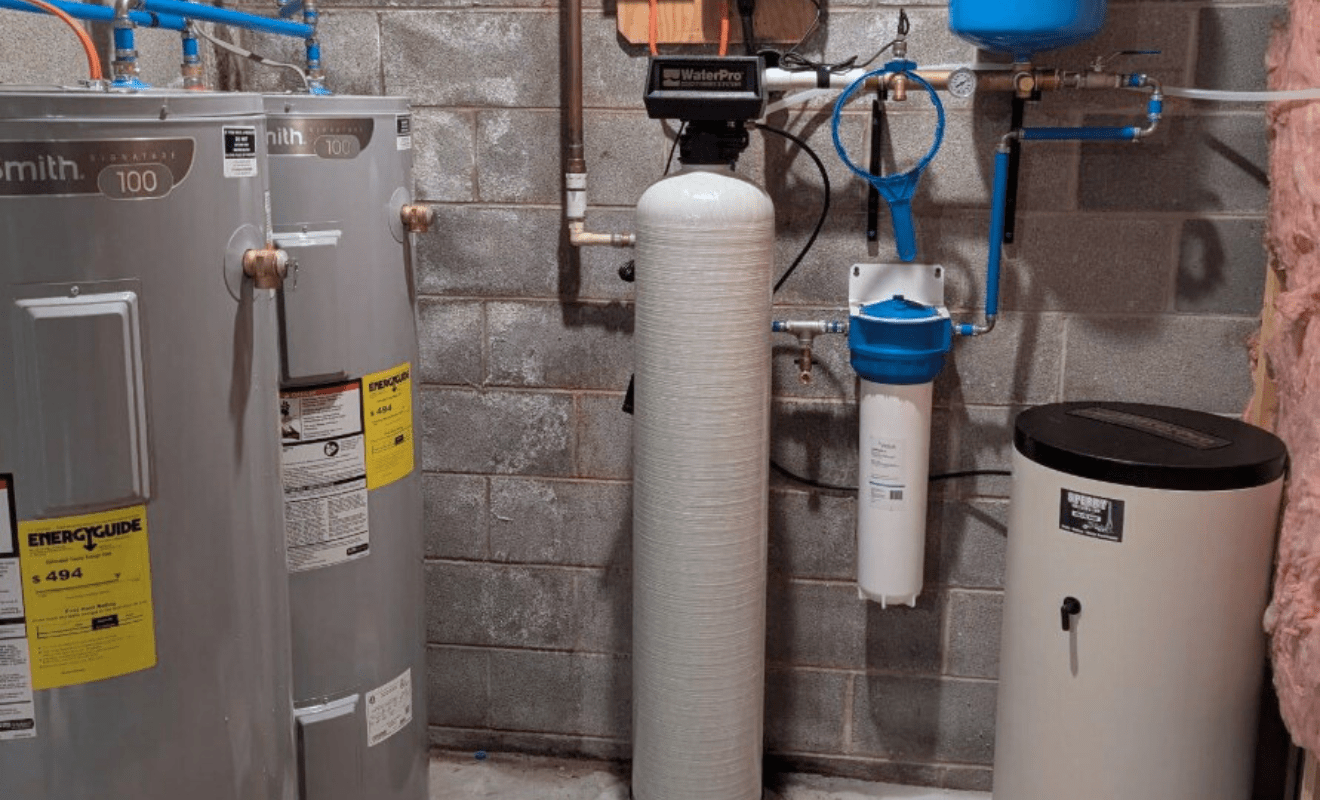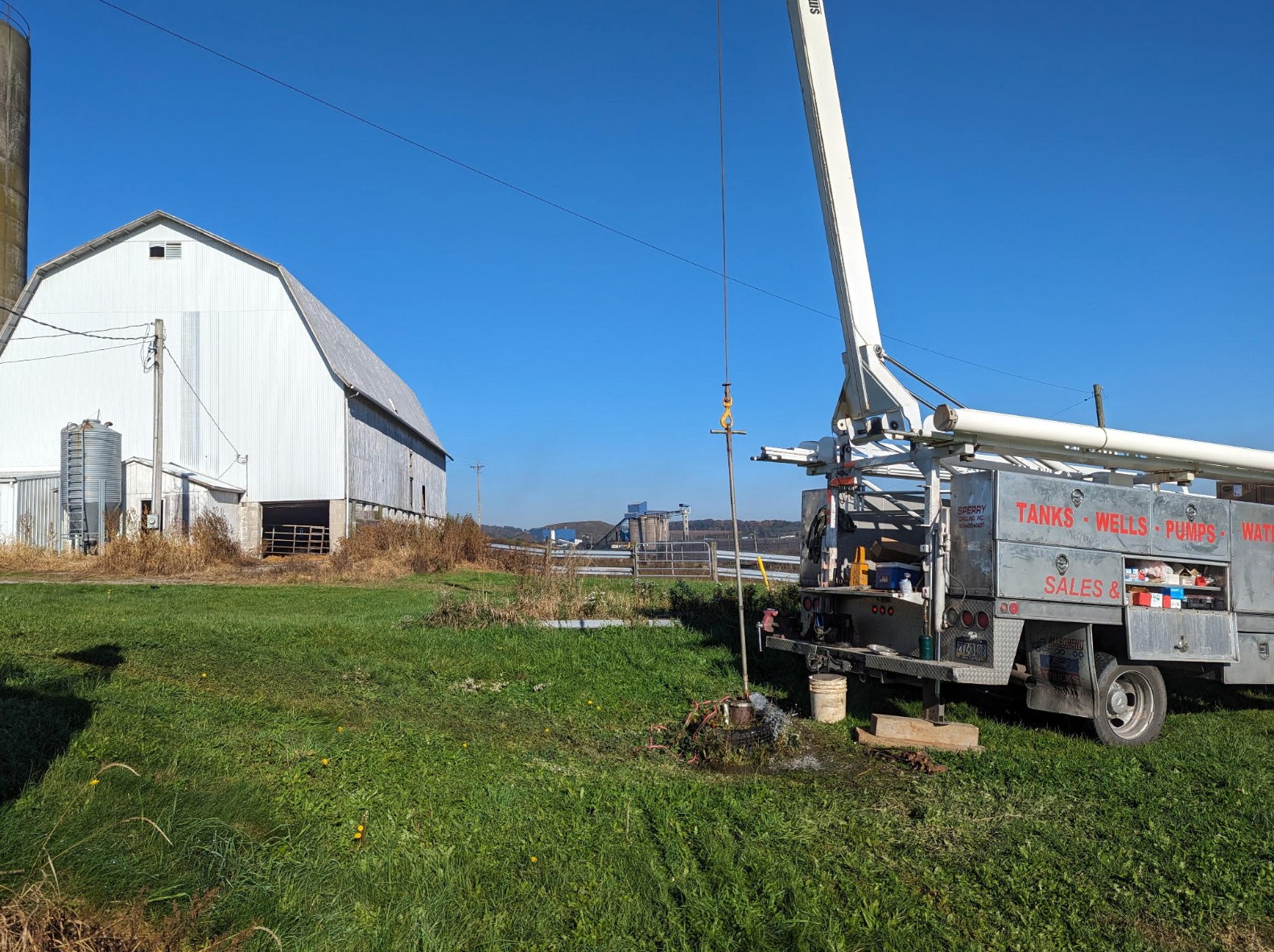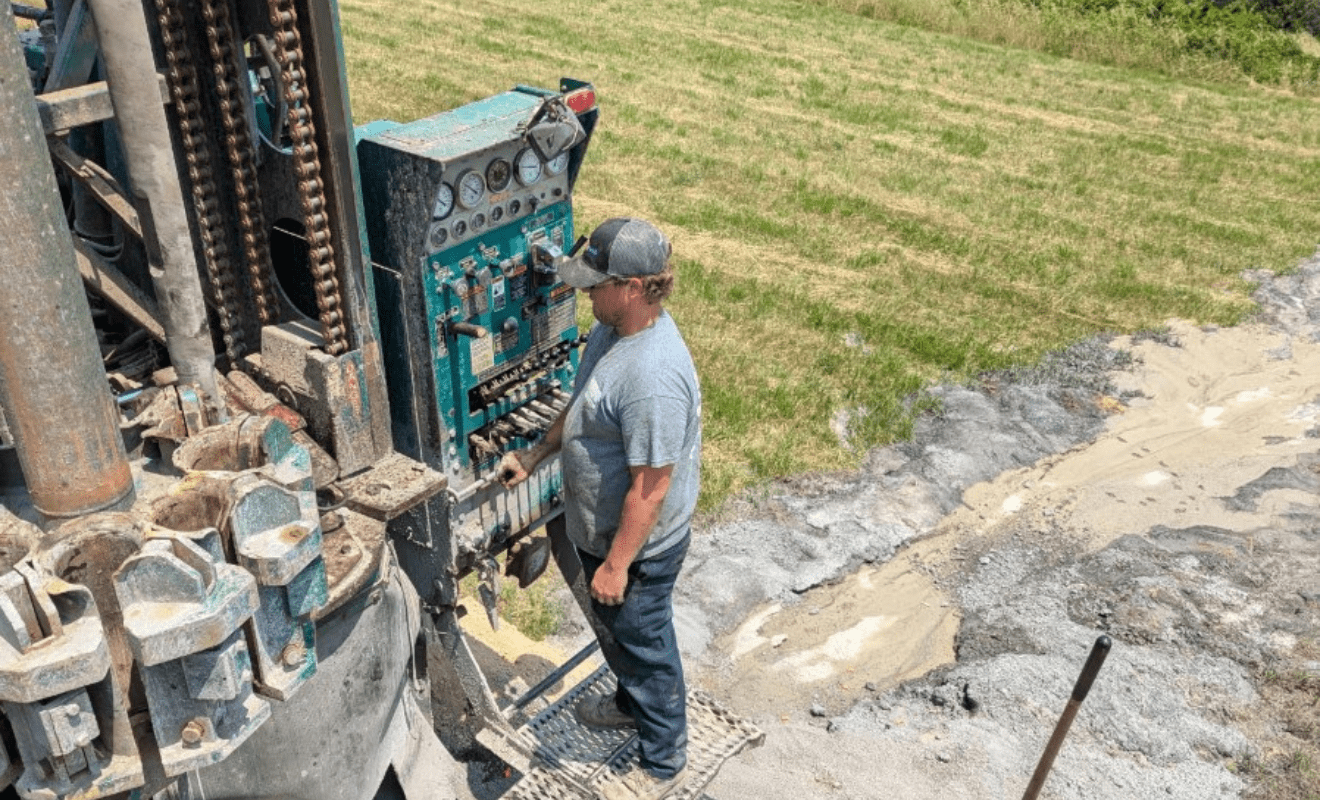If your water smells like rotten eggs or leaves reddish-brown stains in sinks and toilets, you may be dealing with high levels of iron and sulfur. These common groundwater contaminants are especially prevalent in private wells throughout Pennsylvania and surrounding regions. Fortunately, modern filtration and oxidation systems can effectively eliminate these issues—restoring your water’s clarity, taste, and safety.
In this post, the pros here at Sperry Drilling Inc. will explore how to identify iron and sulfur in your water, the different treatment methods available, and how to choose the right system for your household or property.

Understanding Iron and Sulfur in Well Water
Iron and sulfur are naturally occurring elements in soil and bedrock. They often seep into groundwater, particularly in deeper wells or wells drilled into iron-rich formations.
Common Signs of Iron in Water:
- Reddish-brown stains in sinks, tubs, and laundry
- Metallic taste in drinking water
- Clogged pipes or fixtures
Common Signs of Sulfur (Hydrogen Sulfide Gas):
- Rotten egg odor (especially noticeable in hot water)
- Corrosion in pipes and appliances
- Black stains on plumbing fixtures
Tip: If you’re experiencing any of these symptoms, start with a free water test, like the ones offered by Sperry Drilling Inc., to determine the exact type and level of contamination.

Filtration Media Options for Iron and Sulfur Removal
Several types of filtration media are commonly used to target iron and sulfur. Each option has specific pros and cons depending on your water chemistry.
1. Birm Media
- Best for: Moderate iron levels (0.5–5 ppm)
- No need for chemical regeneration
- Requires oxygen in the water for effectiveness
2. Greensand
- Coated with manganese dioxide
- Treats iron, manganese, and hydrogen sulfide
- Requires potassium permanganate for regeneration
3. Katalox Light
- Highly effective for high iron and sulfur levels
- Can remove iron up to 15 ppm
- Requires proper pre-treatment and backwashing
4. Manganese Greensand Plus
- Treats iron, manganese, and hydrogen sulfide
- Works in a wider pH range
- Often used in combination with oxidation systems

Oxidation Treatments for Sulfur and Iron
Oxidation is often necessary to convert dissolved iron and hydrogen sulfide into solid particles that can be filtered out.
Common Oxidation Methods:
- Aeration Systems
- Exposes water to air to naturally oxidize contaminants
- Low maintenance, energy-efficient
- Ideal for low-to-moderate sulfur levels
- Exposes water to air to naturally oxidize contaminants
- Chlorine Injection
- Kills bacteria and oxidizes iron and sulfur
- Requires contact tank and carbon filter for dechlorination
- Kills bacteria and oxidizes iron and sulfur
- Hydrogen Peroxide Injection
- Fast-acting and leaves no harmful byproducts
- Often paired with catalytic carbon filters
- Fast-acting and leaves no harmful byproducts
- Ozone Treatment
- Extremely effective but more expensive
- Produces no residual taste or odor
- Extremely effective but more expensive
Note: Choosing the right oxidation method depends on your specific water quality and whether you’re dealing with ferrous (clear-water) iron or ferric (red-water) iron, as well as the presence of iron bacteria.

Choosing the Right System for Your Home
When selecting a treatment system, it’s essential to consider:
- Contaminant levels (measured in ppm)
- pH and hardness of your water
- Household water usage
- Available space for equipment
- Maintenance preferences
In many cases, a combination system—such as an aeration tank followed by a catalytic carbon filter—is the most effective long-term solution. A professional water specialist can design a system tailored to your well water profile.

Get Cleaner, Odor-Free Water with a Custom Treatment System from Sperry Drilling Inc.
Don’t let iron stains or sulfur smells ruin your water supply. At Sperry Drilling Inc., we offer free water testing and professional installation of Water Pro® conditioning systems, Sanitron UV filters, and custom treatment setups that effectively remove iron, sulfur, and other contaminants.
Call us at (814) 267-3487 or contact us here to schedule your consultation and enjoy cleaner, better-tasting water.




